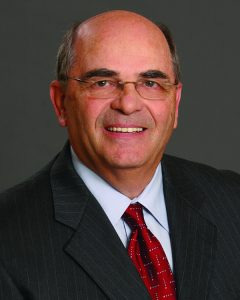Payers & Providers – Disruption: The Healthcare Sector’s Constant Companion
In Order to Innovate, Leaders Need to Always Embrace It
Hank Osowski
Posted: March 2019
![]() [Printable Version]
[Printable Version]
Hank Osowski, co-founder and Managing Partner of Strategic Health Group, recently penned a commentary for the March 7, 2019 California edition of Payers & Providers on “Disruption: The Health Care Sector’s Constant Companion”.

No sector of healthcare is immune to disruption. Every day hospitals, physicians, health plans, drug manufacturers and others are feeling both the pain and the opportunities that disruption brings.
Several environmental factors serve as the catalyst for disrupters, including the fragmentation of our healthcare system and advances in technology and data analytics. Every week it seems new venture capital-backed startups are leveraging the power of technology to target some sector of the healthcare industry, and it’s no wonder why. Healthcare currently represent more than 18% of the U.S. economy; and with more than 10,000 individuals turning 65 every day, that number is projected to reach 19.4% within the decade. Everyone wants a piece of the pie.
Adding to the disrupter’s fertile opportunity is the healthcare industry’s traditional slowness to embrace change. The fact that industry leaders have been unable to materially change the trajectory of the cost curve is an open invitation for disrupters, inside and outside the industry, to come on in. The disrupters’ value proposition is to leverage their market position and technology know how to reduce unnecessary and wasteful costs, improve the consumer experience and reap the rewards. Consider:
- Health plan consolidation and vertical integration are playing out in a big way, led by CVS’ acquisition of Aetna, CIGNA’s acquisition of Express Scripts, UnitedHealth’s proposed acquisition of DaVita’s physician group and Walmart’s interest in Humana. Through its recently announced Health HUB concept stores, CVS has vowed to change how healthcare is delivered.
- Devoted Health, Oscar Health and Clover Health have recently launched their participation in government programs and are bringing a new sense of consumer engagement to the health plan processes. Alphabet’s recent investment of $375 million in Oscar suggests a strong belief in this disrupter’s success.
- Technology companies such as Apple, Google, Amazon and Microsoft are increasingly active in the healthcare market and seeking a bigger share of the $3.5 trillion pie.
- On the risk-acceptance front, many health systems already sponsor some of the most successful health plans in the U.S., including Kaiser Permanente, Providence St. Joseph, Geisinger Health, and Henry Ford Health System. Several other systems, such as Stanford Healthcare, Sutter Health and Cleveland Clinic have initiated their own disruptive efforts through the start-up of provider-sponsored HMOs.
- The federal government is playing an increasingly disruptive role through public policy and the actions of the Centers for Medicare & Medicaid Services, which accelerate the shift from solely an acute care health system to a “wellness” system that recognizes the importance of social factors on an individual’s health. The bipartisan Chronic Care Act, included in the 2018 Budget Reconciliation Act, provides Medicare Advantage plans the opportunity to offer supplemental benefits for the chronically ill that “have a reasonable expectation of improving or maintaining the health or overall function of the enrollee.”
The enticements for system disruption have always been there. The real question today is how will we respond to these new challenges, which, if properly managed, have the capacity to open doors to innovation that will improve quality and outcomes.
New partnerships and alliances coupled with accelerated learning from the early efforts of the disrupters can provide a strong foundation for capturing the best ideas and tools to strengthen an organization’s strategic positioning. But in order for that to happen, healthcare leaders must embrace and adapt to the challenges associated with disruption. “We’ve always done it this
way” should be relegated to the dustbin of history.
Leadership can’t be afraid to challenge conventional thinking and must encourage exploration and innovation. The worst thing you can do is to stand still. No segment of the healthcare industry can afford to be complacent in this rapidly changing and disruptive environment.
Hank Osowski is managing partner of Strategic Health Group in Burbank, which provides healthcare organizations with consulting services across a wide spectrum of needs including strategic planning, new health plan development, market and product expansion, strategic partnering and affiliation, interim executive management and many others. www.strategichealthgroup.com
